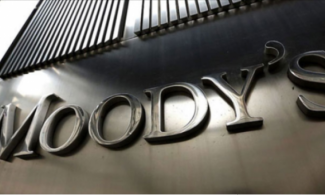
The agency added that the falling prices of raw materials like crude oil, and weak investor confidence will increase the cost of borrowing for these economies in the near future.

As the trade war between the two largest economies in the world, the United States of America and China, threatens to cause another recession, credit rating firm, Moody's says the Nigerian economy is too weak to make spending cuts if another shock hits.
In a statement made available to SaharaReporters, the topmost rating agency explained that cutting expenditure was easier than raising revenue in the event of an economic crisis and the Nigerian economy does not have much flexibility in implementing such a move at present.
Moody's said Nigeria was burdened by a lot of interest payment on debts — mandatory expenditure.
In the analysis of financial data from 17 sub-Saharan African countries, the rating agency said, “Nigeria and Gabon have relatively less flexibility to cut spending; in Nigeria, we capture only sending at the federal government level, where interest makes up a relatively large share of total spending, while the relatively low degree of spending flexibility reflects past fiscal consolidation which was skewed toward discretionary spendings — such as capital expenditure. In Gabon, less flexibility to cut spending today reflects the composition of past fiscal consolidation.”
Moody's noted that all the countries in focus were at weaker starting positions, in defending themselves against a recession. It attributes this to an increase in public debts by the 17 economies.
“As debt burdens are now higher than just five years ago, SSA sovereigns are more vulnerable to future shocks and have less capacity to employ countercyclical fiscal policy to absorb future shocks,” it said.
The agency added that the falling prices of raw materials like crude oil, and weak investor confidence will increase the cost of borrowing for these economies in the near future.
“The region's governments face a number of possible negative fiscal shocks a slowdown in global growth could be more severe than we currently expect, with a possible negative impact on some commodity prices, and fragile investor confidence threatens to raise sharply the cost of already much less affordable debt for some sovereigns,” it stated.
Based on its findings, Moody's said Cameroon, Ivory Coast, and Rwanda, were best placed to cut back on spending if a shock wave hit them.
On the other side of the extreme are Namibia, Mauritius, South Africa, and Ghana.